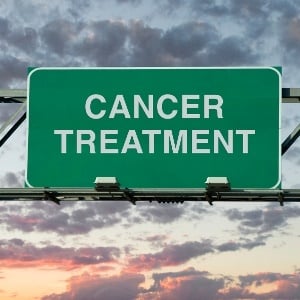
It’s been a while since the world first became acquainted with the concept of nuclear medicine subsequent to Dr Donalee Tarbern discovering the first radiopharmaceutical in 1948.
Although the technology was initiated and popularised in the USA, today through NTP Radioisotopes SOC Ltd, a subsidiary of the South African Nuclear Energy Corporation (Necsa), South Africa produces about a quarter of the world's medical radioisotopes, supplying around sixty countries across five continents.
Small amounts of radiation
Without this medicine, millions of people across the world would likely die. This is an achievement not to be taken lightly as it speaks to South Africa’s ingenuity as a nation – and the scientific talent that abounds in this country.
Nuclear medicine is a branch of medicine that utilises radioactive material to diagnose and treat a variety of diseases including cancer.
Often when people hear the words nuclear or radioactivity, they think of explosions, deformities or cancer. What is often not understood is that radiation in itself is not bad in fact small amounts of radiation is favourable for health.
Read: Immunotherapy cancer trial cures 90% of participants
One receives a good dose of radiation every day in the form of background radiation. Radiation simply means the release of energy. The most familiar form of radiation is visible light, like that received from the sun or even a simple light bulb.
Nuclear medicine is unique in that it determines the cause of a medical problem based on the functioning of an organ. It can pinpoint molecular activity within the body and identify a disease or abnormality.
For instance, nuclear imaging diagnosis can be used to determine if adequate blood is being pumped to your heart or brain or assess the damage after a heart attack. Nuclear medicine offers the best chance of detecting diseases at its earliest stage before symptoms occur.
Established medical speciality
Added to this, when compared to other invasive and exploratory procedures nuclear medicine is more affordable.
Read: It's a first: SA woman has cancerous tumour removed by a robot
Nuclear medicine is a critical component in the treatment of cancer. Almost ninety percent of all cancer detection procedures are performed with the use of radioisotopes, and there are more than twenty percent of them worldwide using radioisotopes produced at South Africa’s Safari-1 reactor.
Therapeutic procedures such as radioactive iodin therapy are used to treat an array of cancers and other medical conditions. The Safari-1 reactor, operated by the South African Nuclear Energy Corporation (Nesca) is already fifty years old and operates at full capacity for 305 days per year - a world record.
Read: Technology may hold the key to fighting cancer
Nuclear medicine produced by Safari-1 is transported globally with radioisotopes being transported by air in internationally-licensed, South-African produced, containers of proven strength and structural integrity.
Nuclear medicine was first used on patients over 60 years ago. Today it is an established medical speciality, with over 10 000 hospitals worldwide making use of the expert treatment produced here in South Africa.
This is something we as South Africans should be proud of and look to grow and develop in the years to come. As the debate about nuclear continues in South Africa and we are bombarded with all the supposed negatives of the technology, let’s all just take a moment to think of all the millions of lives that would have been lost without it.
Health24 asked Dr Bright Mhlongo a couple of practical questions about nuclear medicine
6.Can you name a couple of Countries RSA exports the Medical Radio Isotopes to?
The USA, Canada, Mexico, India and China
Read more:




 Publications
Publications
 Partners
Partners











